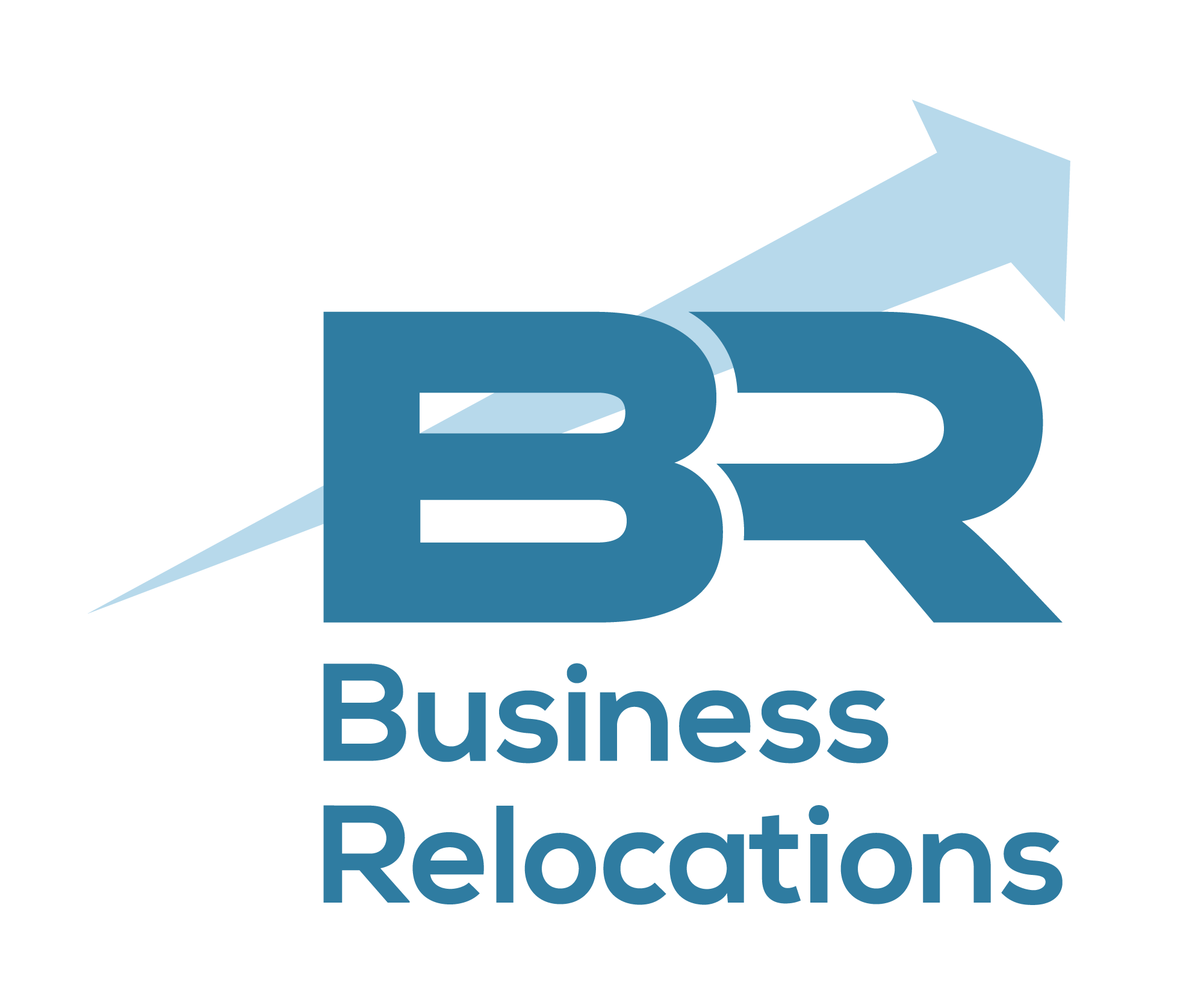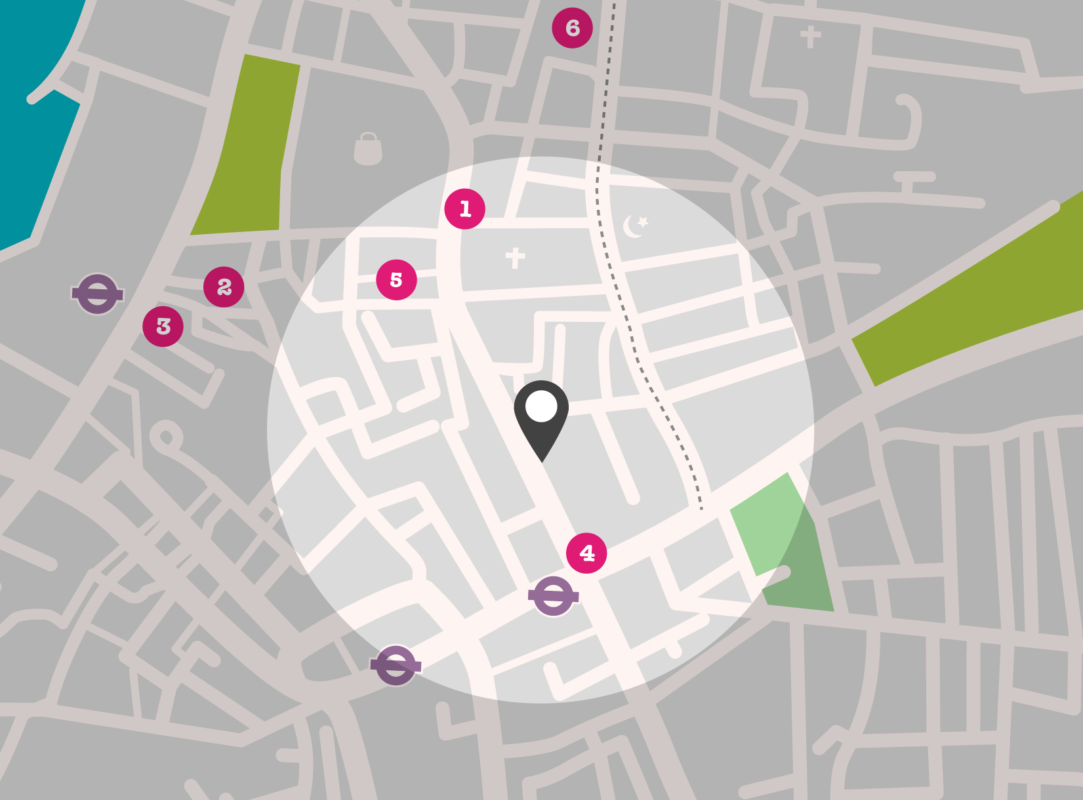The physical location of any business may play an integral role in its ultimate success.
Almost every introductory marketing course will introduce you to the concept of the “four P’s”. The fourth of the four P’s is “Place”. Place is usually thought of as how the end user accesses the product, including concerns over the businesses geographic location. If your business sells products directly to customers, is a service industry or you regularly entertain clients on site, then it’s clear that being in the right location is essential.
Convenience for Travel
Is free parking available? Is the location close to public transport links such as train stations? Is there a nearby cycle route that will make commuting by bicycle a pleasure for potential staff? The more accessible a location is for both current staff or a future team, the easier it will be to attract the right employees and retain your top talent.
Amount of Traffic
Being in a high traffic location is excellent for service industries because it means you can have a high flow of potential customers. However, if your business is primarily client rather than customer based then being somewhere with a significant amount of pedestrian and automotive traffic could be a hindrance.
Demographics of surrounding area
If your business is aimed at locals, and not located in a shopping precinct, you should look carefully at many demographic factors of the area you’re considering.
Entruprenure.com recommends businesses should investigate the following demographic factors before considering moving a company to a given location:
- Purchasing power. Find out the degree of disposable income within the community.
- Residences. Are homes rented or owned?
- Means of transportation. Do prospective customers in the area own vehicles, ride buses or bicycles, and so on?
- Age ranges. Does the community consist primarily of young people still approaching their prime earning years, young professionals, empty nesters or retirees?
- Family status. Are there lots of families in the area or mostly singles?
- Leisure activities. What type of hobbies and recreational activities do people in the community participate in?
Source: https://www.entrepreneur.com/encyclopedia/demographics
Larger companies often utilise the skills of Business Analysts who employ statistical models to predict which locations will be most likely to be successful when opening a new location or franchise. Companies like Starbucks even apply big data and social data such as search data and data from smartphones to estimate where a new store is most likely to bring high revenue. While smaller companies may not have access to the same quantity of data, there are still statistics you can access that can help you make more informed decisions when selecting a location.
Technological Requirements
Make sure you’re only investigating places that have access to enough power for your businesses needs. If your business has high tech, energy-intensive equipment such as large servers then ensure you won’t be using more than the capacity of the circuit. Some companies may also want a space where a backup generator is available for potential power outages. You should also take into account the positions of existing power outlets.
Some equipment may need to be kept at a cold temperature, so you should check how many hours of air-conditioning are permitted by the conditions of your lease.
Strategic partners
Proximity to similar businesses might not seem to be a pressing concern in the immediate future but should be a consideration. The reason certain places become a hub for certain types of business (think Silicon Valley) is that physical proximity makes it more likely for partnerships to form.
Being close to related but separate businesses can help draw similar clientele for your business. For example, a sports supplements store might do very well next to an existing popular gym.
Local SEO and the importance of Location for Online Businesses
Even if your business interacts with customers in an exclusively online capacity sale like an e-commerce company, then you shouldn’t discount the importance of location. Local SEO has a profound effect on who is likely to find your business through search. Googles algorithms preferences companies that are physically nearest to the end user, this can have an enormous impact on the quality of traffic arriving at your website, the number of online sales you generate and ultimately your company’s bottom line.
For instance, if you were running an e-commerce company, shipping only within New Zealand then the optimal locations to maximise your appearance in search would be within one of the main cities of Auckland, Christchurch or Wellington.
Although there is huge growth in online sales, the vast majority of total retail sales still transpire in physical stores. In New Zealand, only 7.4% of retail sales are completed online (This doesn’t mean that online advertising doesn’t contribute to these deals, as a significant proportion of e-commerce buyers go to a physical location after finding a product online)(source, Statistics New Zealand).
Relocating your Business
Once you’ve done the appropriate research and found the right place to move your business. You should always use a professional moving company to ensure your relocation is smooth and successful.
Business Relocations have been helping all kinds of clients move their business since 2001. With over 70 years of combined relocations management experience, we pride ourselves on the quality of service that we offer, getting your business operational again in the shortest time possible. To learn more about us and how we can help, get in touch either online or on 09 630 7329
Sources:
Featured image: https://www.freepik.com/free-vector/road-location-map-in-top-view_831363.html Designed by Freepik
Devereux, C (2017) “Online retail spending in New Zealand up 16%” The Register, http://theregister.co.nz/news/2017/03/online-retail-spending-new-zealand-16-percent
Thau, B (2014) “How big Data helps stores like Starbucks choose their locations”, Forbes, https://www.forbes.com/sites/barbarathau/2014/04/24/how-big-data-helps-retailers-like-starbucks-pick-store-locations-an-unsung-key-to-retail-success/#629364d316db

